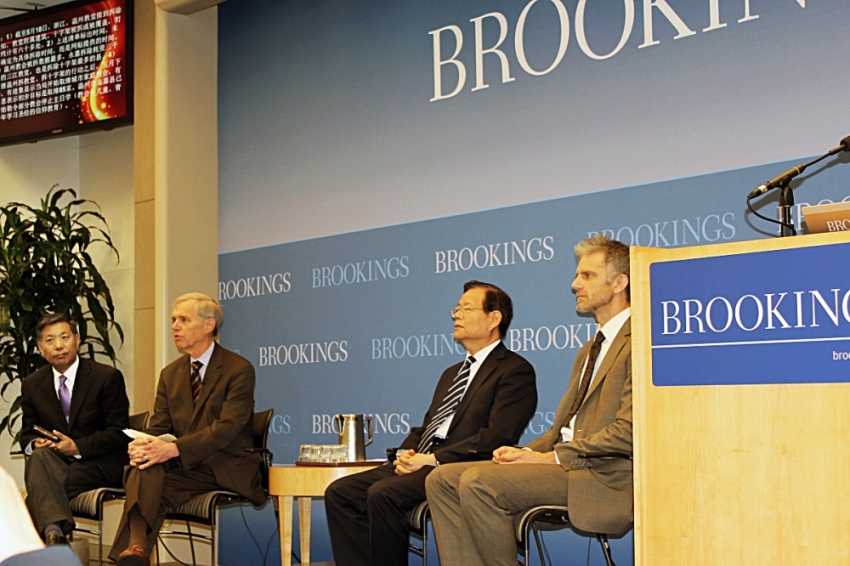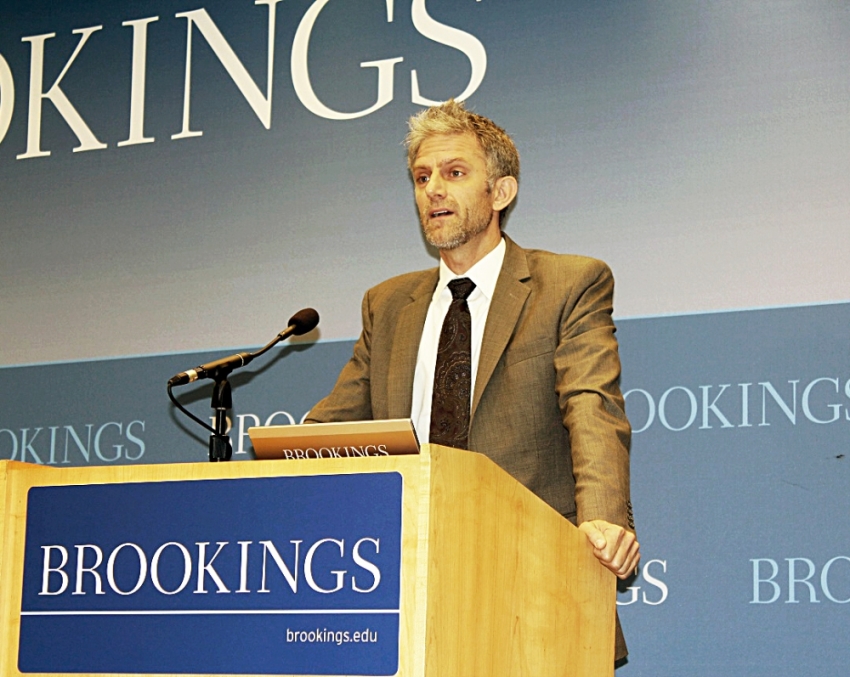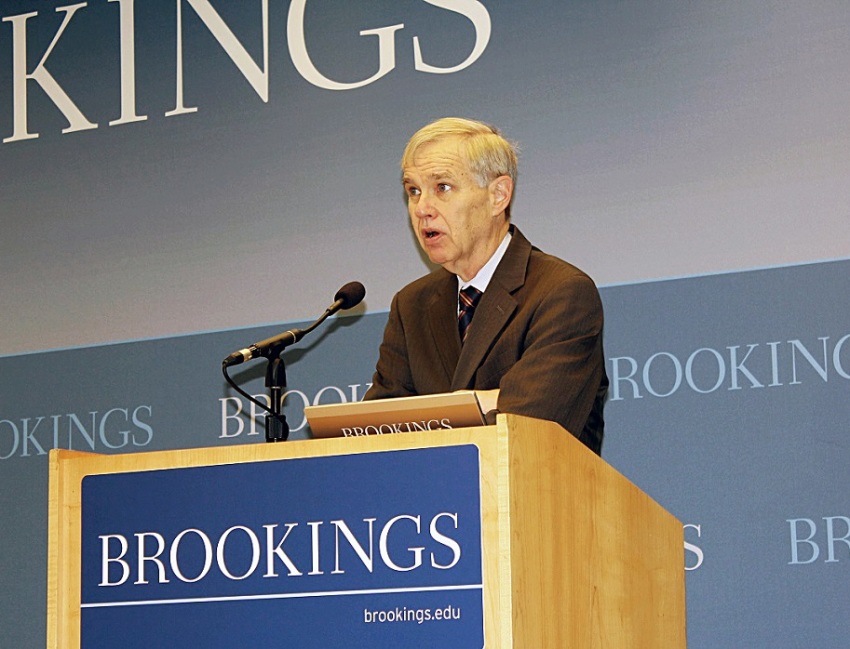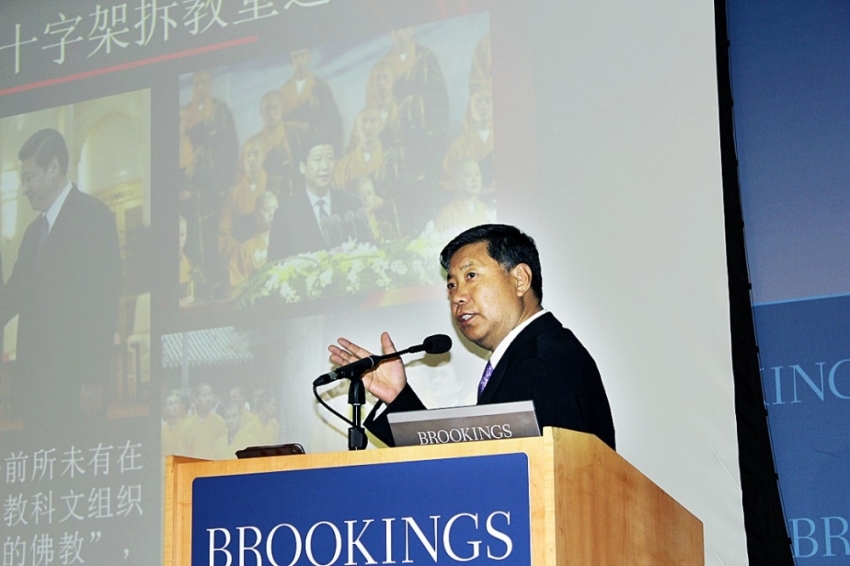Panel Looks at Christianity's Rapid Growth in China Despite Persecution

WASHINGTON – Even as the Communist Chinese government recently cracked down on Christian communities, Christianity continues to grow rapidly in the People's Republic.
This was the observation noted by a panel – titled "Christianity in China: A Force for Change?" –sponsored by the Brooking s Institution on Tuesday. Experts discussed the growth of Christianity, especially in the years since 1989, after the infamous crackdown on demonstrators at Tiananmen Square.
Carsten Vala, assistant professor at the Political Science Department of Loyola University Maryland and one of the panelists, told The Christian Post how many Chinese Christians view recent actions against them.
"Chinese Christian leaders look at this as a winnowing effect, so those who are not true Christians will leave the churches; the 'Sunday Christians,'" said Vala.
"The really committed, devout believers will be increasingly strengthened in their faith by this 'winds of persecution' and honestly the church buildings may be torn down, but that doesn't mean the congregations themselves have scattered."

Held at the Falk Auditorium, the event featured two panels on Christianity in China, focusing on topics such as the socio-political status of Christianity in the Asian country and how Christianity is influencing civil society.
In addition to Vala, the first panel of speakers featured Liu Peng, professor at the Institute of American Studies at the Chinese Academy of Social Sciences; the Rev. Zhang Boli, head pastor at Washington Harvest Chinese Christian Church; and Richard Bush, director and senior fellow at Brookings' Center for East Asian Policy Studies, who moderated the first panel.
"I am also very interested in this subject because it's a key issue for understanding the dynamics of state and society in China," said Bush.
"Whether one is religious or not, the survival of religious belief and faith in China from 1949 to 1979 is really one of the most inspiring stories that one could ever come across."
Bush also told those gathered that he found it appropriate to link Christianity's growth in China and the Tiananmen Square protests "because both were a response to the political and moral vacuum in China in the post-Mao period."

Vala gave a presentation to those gathered in the auditorium about his research among Chinese Christian communities during the 2000s. Focusing mostly on Protestant Christianity, Vala noted that a large number of Chinese Christians are younger, well educated, and have only been believers for a relatively short amount of time.
Vala told CP that in contrast to their American counterparts, Protestant and Catholic churches in China rarely cooperate on matters like activism, as they have strong boundaries.
"The words for Christianity, for Protestant and Catholic Christianity are different. Even the words that they use for God is different, so it is seen as really a separate religion in a sense," said Vala.
"So there's very little cooperation. There is some learning. The Catholics have been learning about Protestants and Protestant missionizing, from the Protestants."

A human rights activist who was present at Tiananmen in 1989, Boli spoke through an interpreter about more recent persecution of Christians in the Communist nation.
Boli provided photos and descriptions of churches, including ones registered with the government, that first had their crosses removed by the government and then were demolished.
Boli noted this cracking down as happening on both "Three-Self churches," which are congregations that registered with the government, and "house churches," which are not registered with the government.
"Recently we have seen some changes in the Chinese government's policy towards religion," said Boli via the interpreter. "The reason that caused them to decide to make those changes is because Christianity is moving very, very quickly in China."
When asked by CP what American churches could do to help Chinese Christianity, Vala responded that there were two important things.
"I think the first thing is to learn more about the diversity of the church. The churches are, some are still flourishing while others are being persecuted," said Vala.
"Secondly, I think the churches can develop direct connections with church leaders and support them by remedying the shortage of qualified pastors and then they can of course pray for the churches."
According to Chinese government records, there are approximately 33 million Christians in the People's Republic. Given the many unregistered "house churches" in the country, many believe the actual number to be far larger.



























